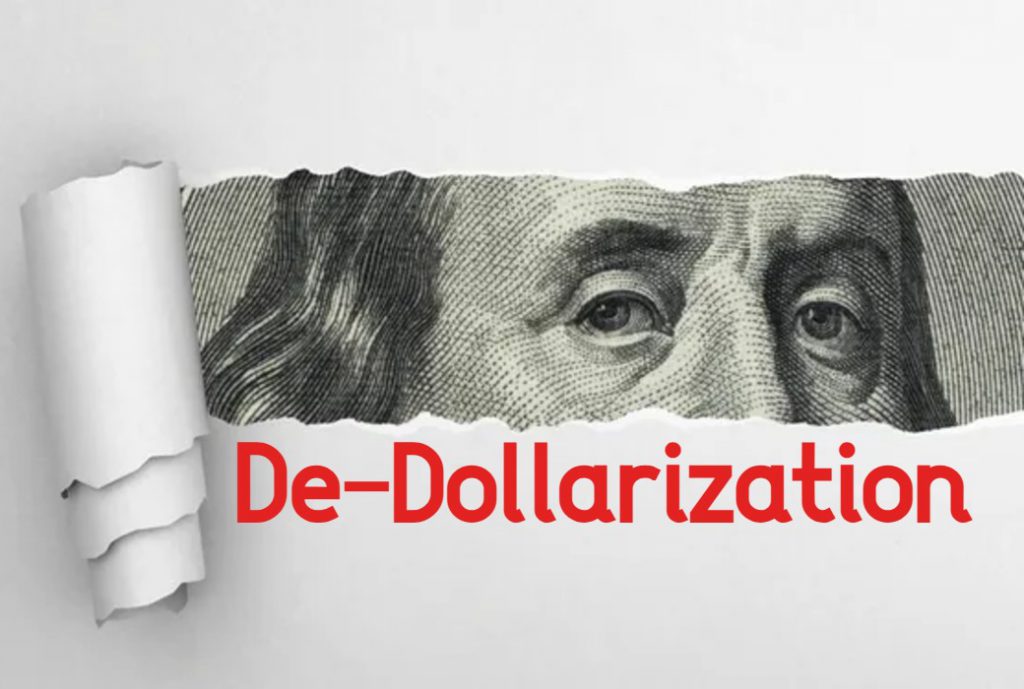The US dollar had one of its worst first halves of the year in a long time. The DXY was down by more than 10% after the first half of 2025. This was the lowest it has gotten in this time frame since 1973. The US dollar is also facing abandonment by several countries, especially those in the BRICS bloc of nations, such as India, China, and Russia. The de-dollarization has gained substantial momentum over the last decade. India, China, and Russia may also have a secret weapon against the dollar’s dominance. Let’s discuss what it may be.
India, China, and Russia’s De-Dollarization Weapon


China’s Cross-Border Interbank Payment System (CIPS) and Russia’s System for Transfer of Financial Messages (SPFS) aim to compete with the currently dominant SWIFT system. Both China and Russia have made substantial inroads into ditching the US dollar for local currencies. Trade between China and Russia has been increasingly settled in the yuan. Yuan settlements have significantly increased after the Russo-Ukrainian war. Both countries have actively pushed the de-dollarization agenda.
India, on the other hand, has not developed any global trade settlement system as of yet. If the nation is working on something in secret, it has done a good job of keeping it under wraps. India-US relations took a hit recently after President Trump announced a 50% tariff on India for buying Russian oil. The move will likely lead to New Delhi distancing itself from Washington, DC. The strained relationship may lead to India pushing for more trade settlements using the Indian rupee. India’s market is one of the most significant in the world. The country could make it difficult for US products to enter its shores.
Also Read: India’s Rupee Goes Global Instead of Single BRICS Currency Plan
While India, China, and Russia may actively participate in ditching the US dollar, it is no easy task to completely replace the greenback. Indian officials have also stated that the country has no intention of getting rid of the US dollar. Love it or hate it, the dollar is here to stay, at least for the foreseeable future.





